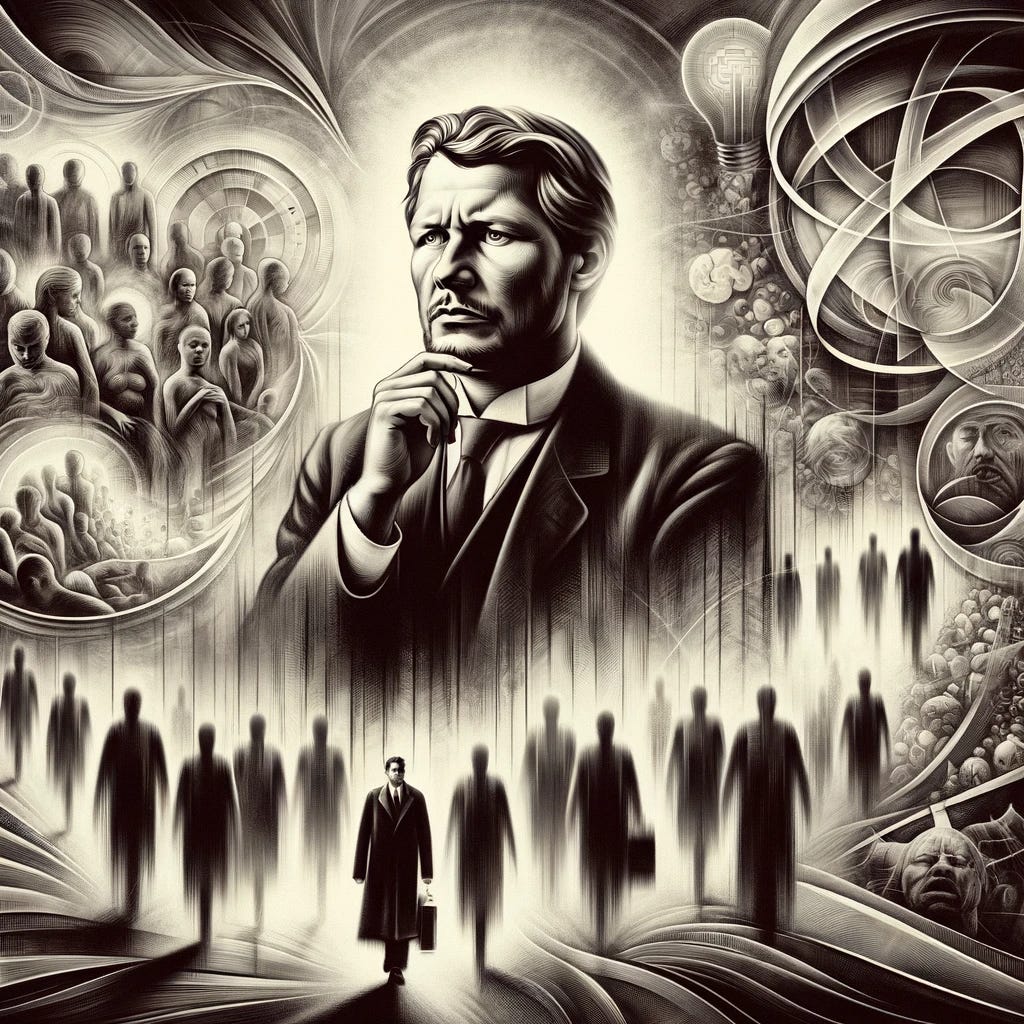Understanding Bonhoeffer's Theory of Stupidity: A Timeless Insight into Human Behavior
Exploring the Depths of Stupidity as a Moral, Not Intellectual, Defect
In a time marked by unprecedented turmoil and moral decay, Dietrich Bonhoeffer, a young German pastor, emerged as a voice of reason and courage. His insights, born from the crucible of suffering and reflection during his imprisonment, remain profoundly relevant today. This article delves into Bonhoeffer's theory of stupidity, a concept that transcends mere intellectual inability and touches the core of moral integrity.
The Genesis of a Theory: Bonhoeffer's journey to understanding the nature of stupidity began in the darkest chapter of German history. As he witnessed his nation, once celebrated for its intellectual and cultural achievements, descend into a collective of cowards and criminals, he sought to understand the root cause. His conclusion was both simple and startling: the problem was not malice but stupidity.
Stupidity vs. Malice: Bonhoeffer argued that stupidity is a more dangerous enemy of good than malice. While evil can be recognized, protested against, and even stopped by force, stupidity is impervious to such interventions. It is a condition where facts and reason fall on deaf ears, and contradictions to one's prejudgments are either ignored or dismissed as irrelevant.
Characteristics of Stupidity:
Moral, Not Intellectual: Bonhoeffer emphasized that stupidity is not an intellectual defect but a moral one. It's possible to be intellectually agile yet stupid, or intellectually modest yet wise.
Self-Satisfaction and Irritability: The stupid person is often self-satisfied, and this complacency makes them dangerous, especially when their beliefs are challenged.
A Sociological Phenomenon: Stupidity, according to Bonhoeffer, is less a psychological and more a sociological problem, often amplified in groups.
The Role of Power: Bonhoeffer observed that surges of political or religious power often infect people with stupidity. Under the influence of power, individuals lose their inner independence and autonomy, becoming mere tools in the hands of the powerful.
Overcoming Stupidity: The challenge with stupidity is that it is stubborn and dependent on external influences. Bonhoeffer believed that overcoming stupidity requires an act of liberation, often necessitating external liberation before internal liberation can occur.
Bonhoeffer's Legacy and Final Thoughts: Dietrich Bonhoeffer's life ended tragically, executed for his involvement in a plot against Adolf Hitler. Yet, his insights into human behavior and morality continue to resonate. He believed that the ultimate test of a moral society is the kind of world it leaves to its children, a thought that challenges us to reflect on our collective responsibility.
Conclusion: Bonhoeffer's theory of stupidity is not just a historical footnote; it is a lens through which we can examine our own times. In an era where information is abundant yet wisdom seems scarce, his insights urge us to look beyond intellectual prowess and focus on the moral dimensions of our decisions and actions.
Further Reading: For those interested in exploring Bonhoeffer's thoughts in his own words, his original text, "After Ten Years," is a recommended read
.





